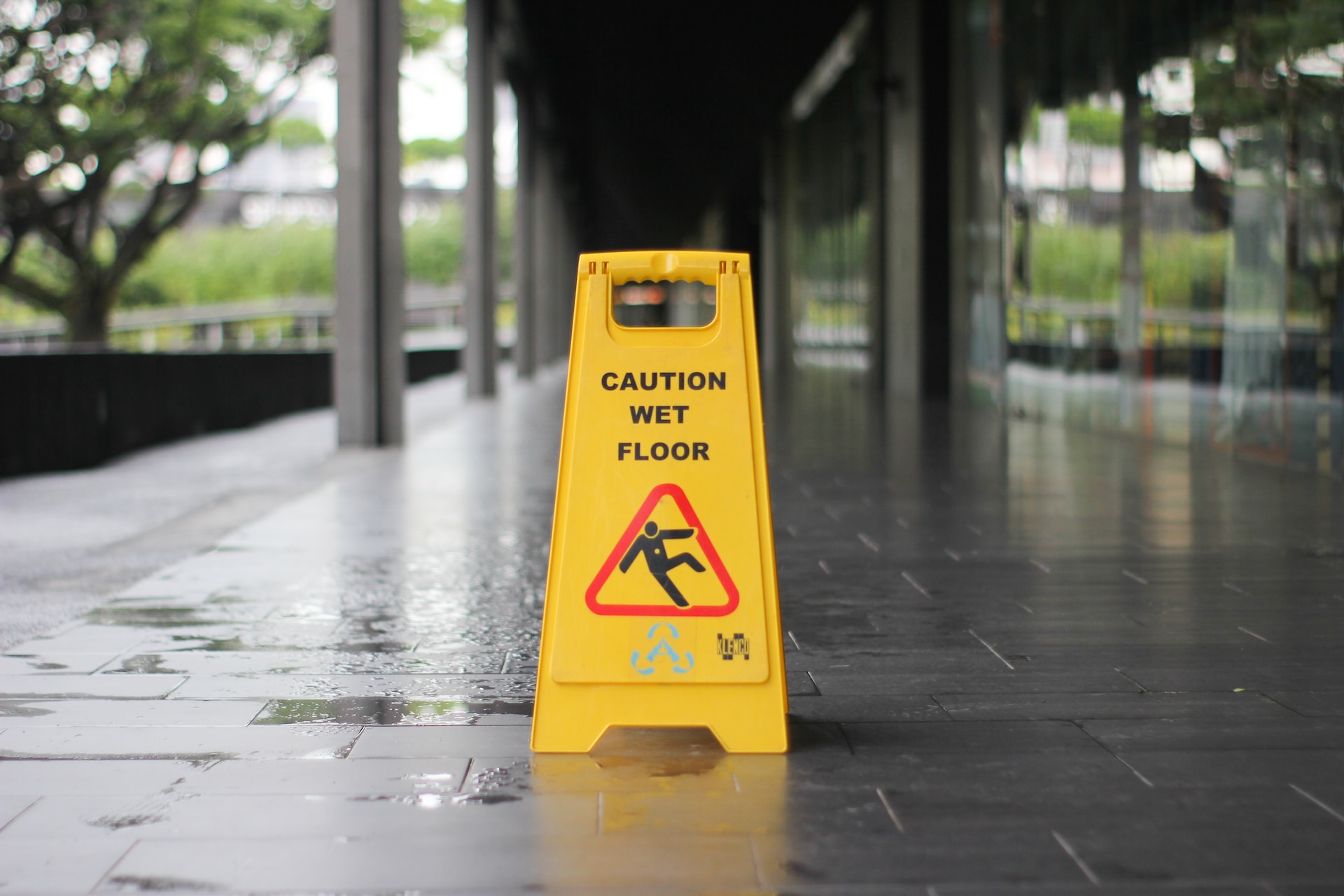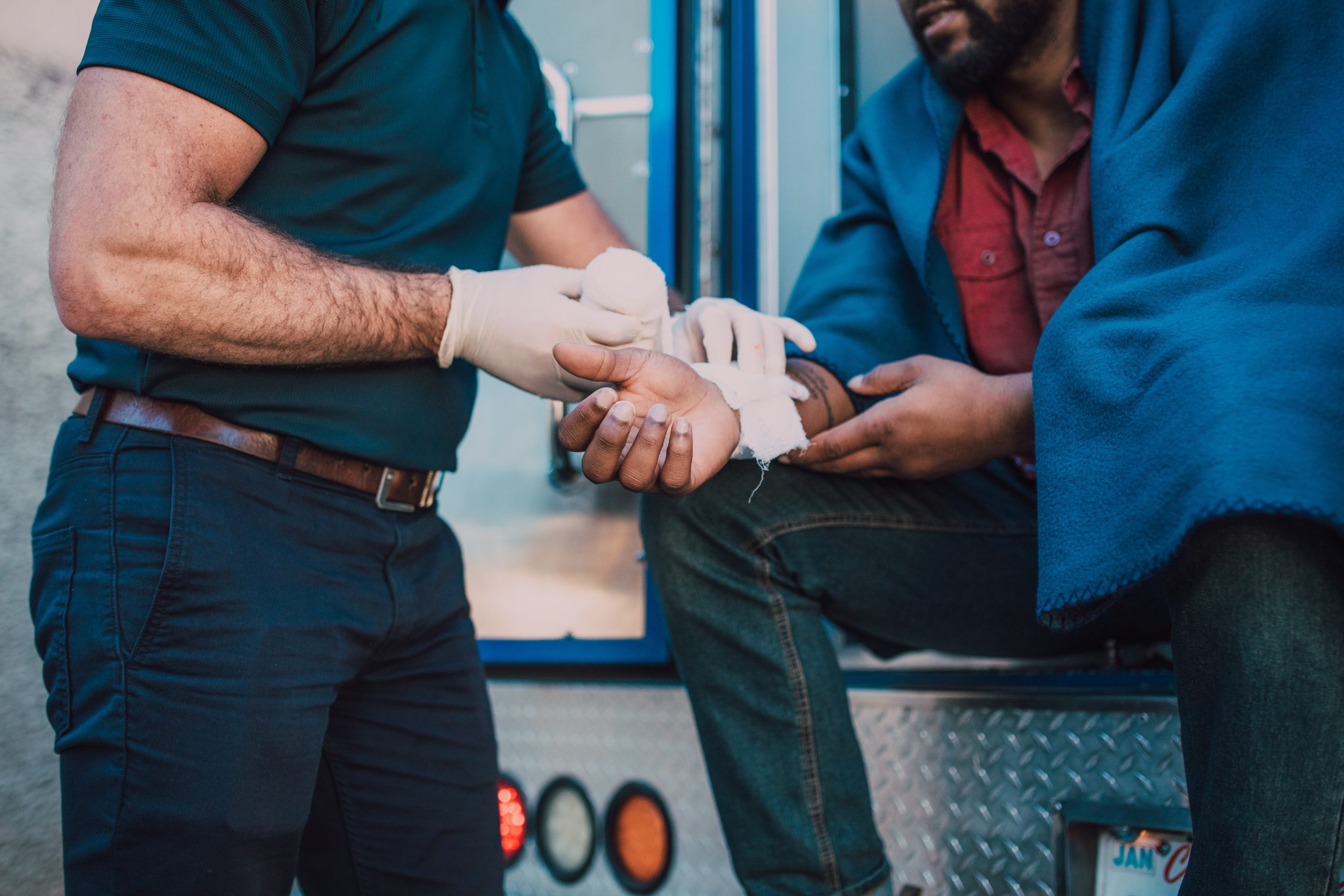According to the Health and Safety Executive (HSE), there were 135 fatal workplace accidents in the UK during 2023, with over 561,000 more injuries. Unfortunately, accidents in the workplace are all too common, and employers need to ensure they are properly educating their team with the necessary information to avoid preventable situations from happening. That’s where RIDDOR training comes in.
What is RIDDOR?
Definition of RIDDOR
RIDDOR stands for the Reporting of Injuries, Diseases and Dangerous Occurrences Regulations.
It encompasses a set of regulations within the UK that revolve around workplace incidents, ensuring all employers, employees, and self-employed individuals report any specified happening that occurs at work to the HSE.
The main purpose of RIDDOR is to ensure that the relevant authorities get the information they need about workplace incidents, illnesses, and dangerous situations. This is both to cover everything from a legal aspect, and to ensure the appropriate measures are put in place to avoid anyone else getting hurt or suffering a similar experience at work.
Examples of RIDDOR
Examples of incidents that fall under RIDDOR include injuries, diseases, dangerous occurrences, and even near misses. This could look like a variety of different things, For example, an employee could fall off a ladder at work and break a bone, or there could be an electrical incident that causes a fire. Anything from Carpal Tunnel Syndrome to exposure to radiology falls under RIDDOR.
Legal Obligations of RIDDOR
What Must Be Reported Under RIDDOR?
The key categories of incidents that must be reported under RIDDOR are as follows:
Fatal Injuries
This includes the passing of any person as a result of a work-related incident, whether they are employed at the organisation or not.
Major Injuries
Everything from fractures, to burns, to injuries that require hospitalisation – and again, whether the people involved are employees or members of the public.
Over-7-Day Injuries
This includes any injury that means an employee has to be away from work for more than seven consecutive days.
Occupational Diseases
This can include occupational asthma, musculoskeletal disorders, or certain diseases that happen as a result of exposure to hazardous substances at work.
Dangerous Occurrences
Certain situations that pose a risk of serious harm must be reported, such as an explosion, release of a hazardous substance, or the collapse of equipment.
Gas Incidents
A gas leak in a work environment must always be reported.
Specified Near Misses
Even if no one was harmed, any situation involving a near miss with the potential for harm or other serious consequences must always be reported. This is crucial in order to prevent any similar situation happening in the future.
Injuries to Non-Workers
Any harm to members of the public or other non-workers that happen as a result of a work-related activity has to be reported.
Unintended Exposure to Biological Agents
This means any accidental exposure to a substance that could cause harm, infection, or illness.
Who Has to Be Informed of RIDDOR Incidents?
First and foremost, the HSE must be informed of any workplace incident within the UK.
In addition, there are several groups that the organisation must also report to, including:
Employer
The person who is in charge of the organisation must be informed, as they will usually be the one responsible for reporting the RIDDOR incident to the HSE.
Employees and Worker Representatives
Keeping these parties informed fosters open communication at work, and promotes a collaborative approach to dealing with health and safety.
Insurance Providers
Employers may need to contact insurance providers about work-related incidents, as the incident may lead to a claim.
Affected Individuals or Families
In cases where the incident was more severe, those who are close to the people involved will need to be contacted and informed of what’s happened.
Trade Unions
If the organisation involved has a trade union representative, they will need to be informed as they play a key role in representing employees.
Who Should Submit a RIDDOR Report?
Depending on the nature of the incident, these parties should generally submit a RIDDOR report:
- Employers.
- Self-employed people.
- People in control of work premises.
- People in control of equipment.
- Legal representatives.
What Is Not Reportable Under RIDDOR?
Of course, there will be certain situations and events that are generally not reportable under RIDDOR. Some examples include:
- Minor/first-aid-only injuries. Small cuts, scrapes, or bruises that don’t require medical attention in a hospital setting do not have to be reported.
- Non-work-related injury or illness. Anything that occurs outside of the confines of the workplace and is not work-related doesn’t require a RIDDOR report.
The Process of RIDDOR Reporting: A Step-By-Step Guide
1. Identify Reportable Incidents
This is a preventative step, as you need to make sure you’re familiar with anything that might fall under RIDDOR so that you’re able to recognise and report an incident, should it occur. If you’re an employer, it’s a good idea to provide some sort of training or education to your staff so that they become familiar with this also.
2. Collect Information
Gather everything you can that’s related to the incident – the date it happened, the time, where it was, who was involved, and a description of what exactly occurred from all parties.
3. Determine Responsibility
Establish who exactly is responsible for reporting the incident. This will likely be the employer of the organisation in question.
4. Use the HSE Online Reporting System
Luckily, the HSE has an online system that you can use to submit a RIDDOR report, depending on the nature of the incident. Make sure to include all the relevant information, with details about the incident and any resulting injuries or occurrences that might have happened as a result.
5. Retain Records
While you’re submitting your report, it’s crucial to keep a copy and maintain your record in accordance with regulatory requirements.
6. Assess Your Procedures
Now that you’ve completed all the mandatory RIDDOR reporting, it’s a good idea to reflect and see if there are any areas where you could improve in your work processes in order to enhance your workplace safety and prevent a similar situation happening in the future.
RIDDOR Training & Fostering A Safe Workplace Environment
RIDDOR training plays a crucial role in preventing accidents at work and fostering a culture of reporting workplace-related incidents. Understanding what incidents should be reported and how exactly to go about reporting them is essential for proper compliance, which helps to keep staff and the general public safe as well as protect organisations from any legal action down the line.
Proper training works to establish the positive impact that reporting has on workplace safety. By reporting incidents swiftly and accurately, organisations have the chance to identify any possible trends, address underlying issues, and implement the necessary measures to prevent people from getting harmed in the future.
If you and your team are looking for an extra bit of support with your RIDDOR knowledge and training, feel free to get in touch today to chat with one of our expert team members about how we can help keep you and your people safe and protected.




